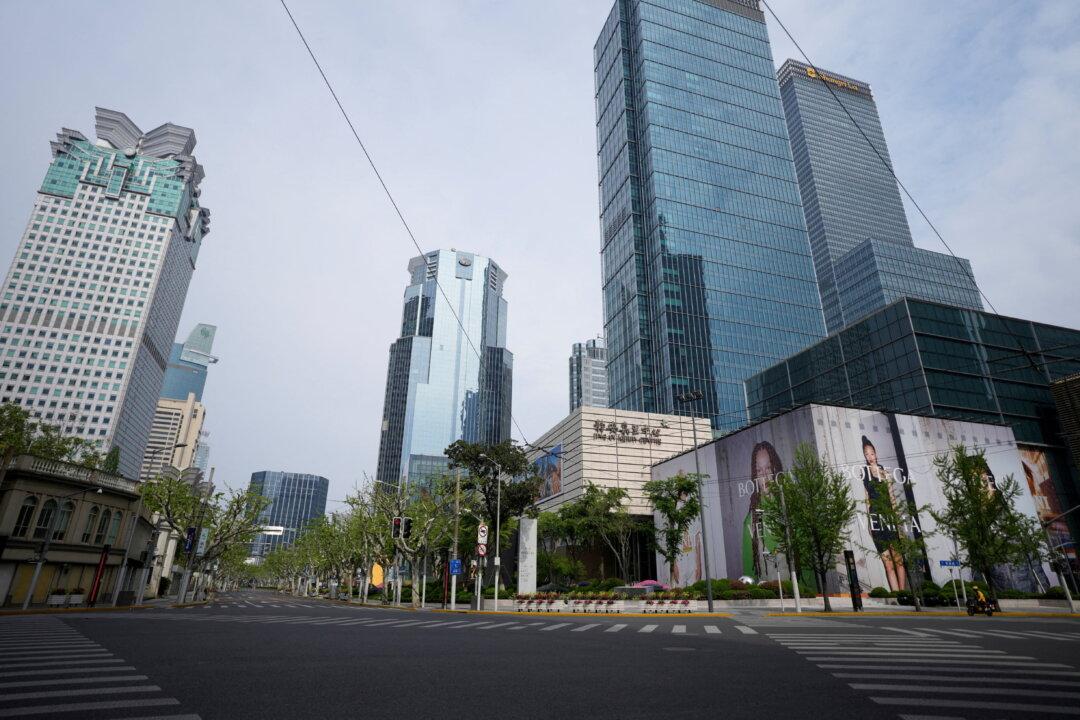Shanghai’s economy was hit hard in April by a nearly two-month-long lockdown because of COVID-19.
The latest data published by authorities show that in April, the total industrial output in Shanghai fell by 61.5 percent year-over-year. An expert pointed out that the Chinese communist regime’s extreme lockdown of Shanghai under its “Zero-COVID” policy has crushed investors’ confidence.




